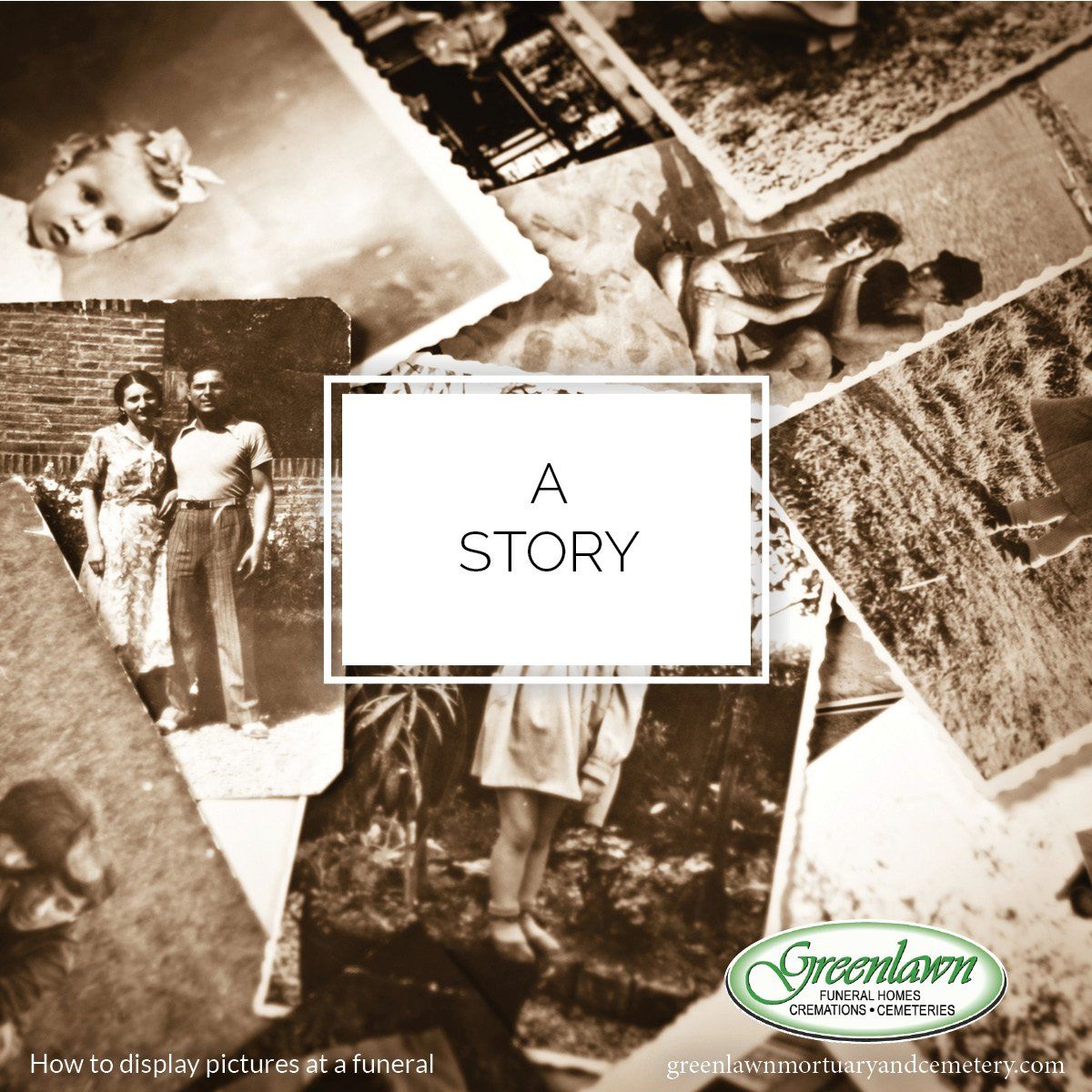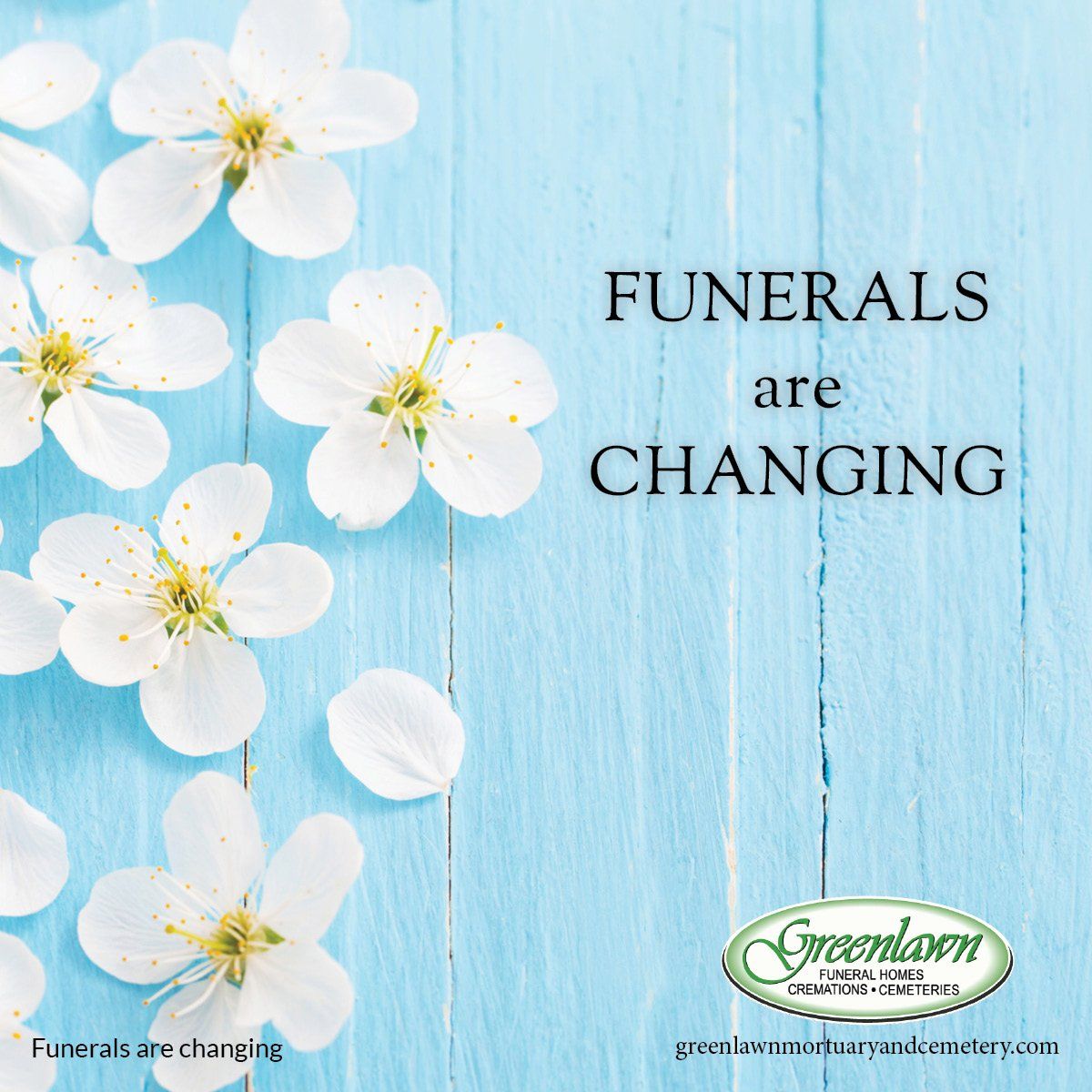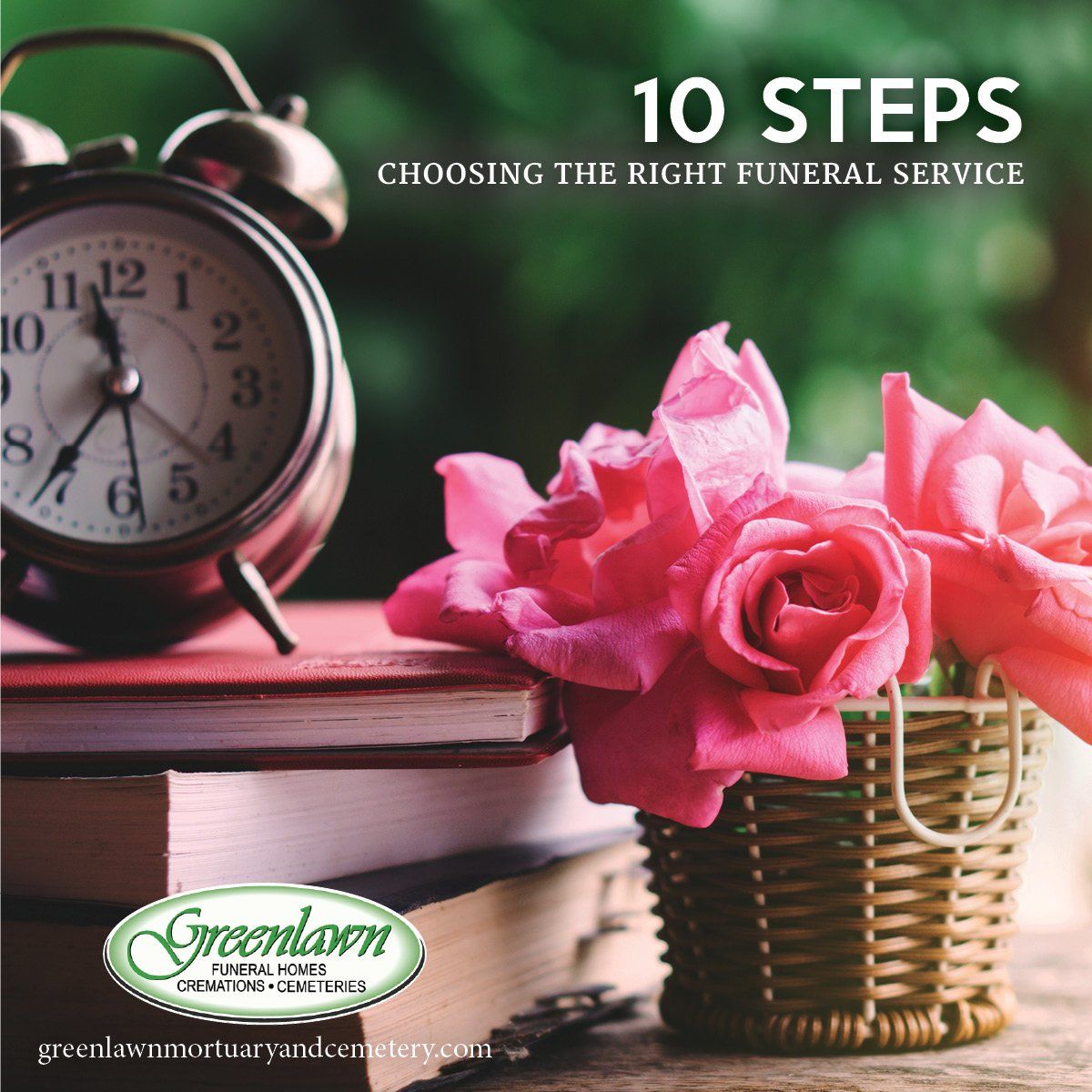
Moving on is not the same as forgetting. Moving on after the death of a loved one, especially a spouse, just means actively engaging in life. It means reaching a point where the mourner has things to look forward to again. J. William Worden, PhD tells us the fourth task mourners must accomplish as they move through grief is to “find an enduring connection with the deceased while moving on with life.” In Worden’s model, moving on is described as a task rather than a stage. That’s an important distinction and implies active engagement on the part of the mourner. It gives the survivor some control and responsibility for the direction of their life moving forward. The more closely entwined the mourner’s life was to the life of the deceased the harder it will be to “move on with life.” When a person’s life has been moving along in lock step with a spouse or partner for the better part of his or her adult life, the adjustment can be very difficult. Some mourners will decide to move on with life as a single. That will mean changing plans. The trips or activities a couple planned to do together will now need to be undertaken alone, with a friend, or abandoned and changed entirely. An open mind and willingness to stretch one’s comfort zone can bring new opportunities. When one door closes another door opens. Painful as it is to lose a spouse, it is possible to find yourself with time to engage in hobbies or interests that had be put on the shelf because they were not enjoyed by a partner. Some mourners will partner up again with someone new. With that method of moving on comes the task of overcoming fear and putting oneself out there… dating. It may mean working with other family members to gain acceptance of the new person in one’s life. It will most certainly mean adjusting to new expectations, personalities, and habits. A new spouse will never be just like the one who died. Whatever the path a widow or widower takes new skills will need to be learned, new things will need to be tried, and adjustments made. It takes work. But then isn’t that just a part of life? www.greenlawnmortuaryandcemetery.com

How do I protect myself from scams that have become all too common in society today? How do I prevent myself from becoming a victim of the scammers who are on the phone, on the computer and at the front door? Stuff needs to get done around your house. Maybe you could use some help with yard work, painting, window cleaning, or a new roof. You answer the phone. Another group is asking for your monetary support. What do you do? How do you respond? Take the time now to familiarize yourself with hard and fast rules designed to help you make good choices and avoid the masters of the scam. Rule number 1: NEVER hire someone you don’t know to do a job who comes to your door and asks for the job. Here’s what they will tell you: • They are doing work in the neighborhood and will give you a great deal. • They’ll tell you how honest they are and may even have a child with them. • They’ll scare you … “those bushes block the view of your door someone could break in” or “snakes hide in those weeds I wouldn’t want to see your little dog get hurt” … “That tree could fall on your house.” • They’ll want a quick decision and payment up front. Just say no nicely and shut the door. Better yet, don’t open the door to a stranger! Only hire someone you call and who provides references. Rule number 2: When it comes to the phone and internet, NEVER give ANY personal information, make a financial contribution, or buy anything from anyone who calls, emails, or texts you and asks. Just say, “I do not ever do that.” Here’s what they will tell you: • “It’s free.” Not on your life! You will pay. It’s never really free. • “It’s for a good cause.” Fire, police, orphans, cancer. They may be good causes, but you can find them locally and donate locally. If you send money you will hear from these folks frequently and forever. They will be asking for additional dollars. • They’ll scare you. Someone you care about needs help (translate that to money). • They’ll tell you they are official US this or that. The real IRS and Social Security do not call people. Don’t believe it. Just say no and hang up. Better yet, screen your calls. Rule number 3: Give yourself a COOLING OFF PERIOD. NEVER be pressured into a quick decision, especially one that involves money. Designate someone you trust to be your decision buddy BEFORE you need them. Make a hard and fast rule for yourself that before you act, you’ll share what you are thinking about doing with this person. Talk to your spouse, partner or parents about scams and scammers. Make a short list of rules for yourself. No exception rules, short and easy to remember. Sign up for AARP fraud alert network at AARP.org. Be prepared. Finally, if you have been scammed don’t keep it a secret. Report it to your state’s Attorney General, the FBI, or Federal Trade Commission. Ask for help. It is embarrassing. Once you realize what happened, you feel foolish and that can be depressing. Don’t be too hard on yourself. Stuff happens. These people know exactly how to push the buttons of nice, kind folks. Prevention is the only real defense. www.greenlawnmortuaryandcemetery.com

Saying good-bye to someone you love is hard. Using pictures at the funeral of the person who died is a wonderful way to help tell a life story. There are a variety of ways to use photos. Using photos that span the entire life of a person—Mom as a little girl on the farm, as a young bride, a mother, at work, and as a grandmother—just brings it all back. Pictures trigger memories and that is one of the important functions of a funeral. You want to remember the life, not just the illness or accident that ended the life. A lot of pictures may not be required to tell the story. A few pictures can be enlarged and displayed around the room. If you have a lot of pictures that your family wants to use, they can be displayed in photo frames or albums. Many funeral homes are equipped with electronics that make it possible to show photos on large screens or televisions. These video tributes can be woven into the format of the service or stand on their own for people to view at will. Ask your funeral director for ideas and how they can help you achieve your goals. Taking the time to come together and go through the family photos can be a healing process on its own. As you are putting together the photos be certain the entire family is well-represented. Everyone will enjoy seeing themselves with the family member who passed. Remember: funeral directors are helpful people. They want your family to have a good experience. Still, they may not be aware that you have an amateur film producer in the family. Be sure to share the talents that your family has at their disposal as well as your family’s vision for the use of pictures at the funeral. A good picture is worth a thousand words. By all means, use those words and bring out those pictures for the funeral. www.greenlawnmortuaryandcemetery.com

According to the CDC, an older adult (age 65+) suffers a fall in the U.S. every second of every day, making falls the leading cause of injury and injury death in this age group. If you or someone you care about are in this age group, it is time to do a safety assessment and possibly make a few adjustments. Footwear • You are looking for support of the entire foot. Skip the mules, toss the stretched-out loafers, and go for shoes that stabilize the heel of the foot and fit snugly. Shoes that tie and have a non-slip sole are best. If you notice an older person is shuffling, not picking up their feet when they walk, check their shoes. House shoes/slippers should follow the same guidelines as outdoor footwear, closed in heel and non-slip soles. Snow and Ice • Can we just say, stay in during bad weather if possible? That means slowing down and doing a cost to benefit assessment before initiating action. Ask yourself, “why am I going out now?” Could the morning paper resting on the ice glazed driveway wait? Perhaps you could give the sun a chance to warm the pavement and melt the ice? What harm would come if you read the morning paper in the afternoon? We are all creatures of habit. We read our paper with our morning coffee; we get the mail from the box every day, sometimes the minute it arrives. Avoiding falls means slowing down, thinking it through, weighing the options and choosing safety over habit. When you do go out take the time to change into your boots, carry a walking stick or cane to help you stabilize, and choose the path that provides the most traction. Be sure someone knows you have gone outside or, if you are alone, take your cell phone with you. Changing Position • When moving from lying down (bed) to walking (to the bathroom) take your time. Sit on the edge of the bed, dangle your feet, give your head a moment to catch up to your new position. Then plant your feet squarely on the floor and wait one click before you take off for your destination. When moving from sitting to standing, plant your feet on the floor then push up using your thigh muscles to rise. Hint: Begin to preserve the strength in your thighs. When you reach your early 60s avoid using your arms to assist with getting from sitting to standing. Keep those thigh muscles strong as long as you can. Move. Move. Move. Find a Safety Buddy • Lots of seniors are spending more time alone these days. That means that if a fall does occur, they will be on their own. Finding someone who can act as a “safety buddy” for a senior living alone is a good idea. When the senior is going to do something “risky”, climb a ladder, wash windows, carry the Christmas tree to the basement, weed the garden, they would place a call to their safety buddy letting him or her know what they are going to do. The two would work together to determine how much time it will take to complete the task. The senior can pledge to call his buddy back when he has completed the dangerous task. That way if a fall occurs and the buddy doesn’t get his call back he will know to check in and get help if needed. Better yet, get help with dangerous tasks! Keep Moving • Inside or outside, keep moving and doing. Take a walk and take your phone with you. Walk your well-behaved dog. If you are a couch potato, clean up the space that surrounds you. Have you put too much of your stuff right at your fingertips so that you don’t need to move? Are you limiting your movement too much? If you are an impulsive/quick mover, slow down but do not stop. Keep your eye on where you are going when you move. Observe your surroundings and avoid the cracks in the sidewalk and the bumps in the road. Accidents are not planned. They always come unexpectedly. Listen to the little voice in your gut or head. When it says something should wait, or you should get help, or what you are considering doing is risky - LISTEN. Resist the temptation to overrule that inner warning. Look for a safer way to complete the task or work on finding someone to help you. www.greenlawnmortuaryandcemetery.com

We all have our love/hate relationship with insurance. Typically, we pay and pay and then we pray we don’t ever need to file a claim. No one wants to have their house burn down or blow away. But, it is also hard to write that check every month. Most folks do so because they are afraid not to. However, there is one kind of insurance you will absolutely use. You’ll get more than you paid in, and you don’t have to pay endlessly. Funeral insurance, not to be confused with final expense insurance, is the rare insurance product designed to cover a cost that you absolutely will incur. We all die in the end. So, how does it work? Funeral insurance is sold through your funeral home. The amount of the insurance matches the cost of your funeral in today’s dollars. It can be paid in one payment and you are done. Or, you can pay over three to 20 years and be covered for the whole cost of your funeral while you pay. It’s easy to find out more. Just call the funeral home and ask to speak to someone in the advance planning department. You will want to set aside one to two hours for your meeting with the advance planner. You will have questions. Remember to ask how funeral insurance is different from final expense insurance. www.greenlawnmortuaryandcemetery.com

Without a doubt, funerals are changing. Funeral services have become less formal and are noticeably more personal. They are sometimes religious and sometimes they are not. Funerals are often shorter and sometimes take place weeks after the death. There may be more songs, more pictures, and there is much more creativity at many funerals today. But the feelings people have when someone they love dies are the same. Grief does not change. People feel detached, alone, numb, untethered. It is hard to believe the person is really gone. You feel their presence, and it hurts to feel it, but you are afraid not to feel it. Grief is hard. When someone important to us dies it is significant and there is a need to grieve and say good-bye. Most of the changes in funeral services are no more than updated ways to do what funerals have always done. Funerals gather us together so we can cry, hug, laugh, and remember with our family and friends. Funerals let us know we are not alone and provide a way for our friends and family to feed us emotionally and physically. Funerals provide an avenue toward acceptance of the reality of a death. While a funeral does not alleviate the pain, it is at least a little easier to begin to accept the loss in the embrace of family and friends. Funerals help us acknowledge that life had value. This person was once a child. They were a mother, father, brother or sister. Whether they were famous or infamous, rich or poor, kind or mean, they lived. Funerals can’t erase the pain of loss. When the funeral is over the grief is not over. However, skipping having a funeral won’t eliminate grief either. It won’t make death any easier. The ceremony of a funeral answers an instinctive need when going through the grieving process. Watch the reaction of a child when death impacts their life. Little children seem to just instinctively know what needs to happen. When their goldfish dies, they know they need the help of their parents to deal with loss. They are drawn to ceremony of a funeral to complete their grief and understand the feelings that go with it. www.greenlawnmortuaryandcemetery.com

Who gets to decide what is included in a funeral service? Each state has laws that govern who has control over the body of a person who has died. In most states if the individual was married, the spouse will be responsible for taking care of the disposition (what happens to the body) and funeral service. When there is no spouse the adult children will decide. If there is no spouse and the children are minors, then the parents of the deceased will be responsible. If the parents are also deceased, then brothers and sisters will become the responsible decision makers. As you can see, there are a variety of scenarios where “who decides” can get messy. Also know that the person who is going to pay for the funeral is entering into a contractual agreement with those who will provide service - the funeral home, crematory or cemetery. As a result, that person will have the “power of the checkbook”. With that power comes a considerable measure of control over decision making. There are different ways to approach putting together a funeral service. The “right” service is the one that honors the life of the deceased and provides ease for the survivors. When faith is important to the family or was important to the deceased that faith is usually reflected in the service. The right service fits the budget and does not create a financial burden. There are many options to consider in putting together a funeral. All of these choices ensure that every family is able to have a service that is right for them. When you find yourself in the role of decision maker regarding a family member’s funeral, the ten steps below can help you assure the funeral will provide comfort to you and all of your family remembers. Step #1 Take a deep breath and give yourself permission to fall short of “perfect”. Remember these famous words … “You can please some of the people all of the time, you can please all of the people some of the time, but you can't …” … please all the people all of the time” (Poet John Lydgate as made famous by Abraham Lincoln). Know that even when you do your best there may be some people who would have done differently. Step #2 Make a list of the people who are the “some” that you really do want to please The spouse or partner, the children, the parents, sisters and brothers, and close life-long friends are all people who are likely to be deeply affected by the funeral service. These are the people the service needs to please. In order to plan the “right” funeral you will need to know what is important to these people. This does not mean everyone needs to or will agree. Nor does it require everyone weigh in on every decision. Step #3 Ask each of these people, “What is the one thing that you would most like to see included in the funeral service” Write these answers down. Ask clarifying questions if needed in order to be sure you really understand what is most important to each of the people you are aiming to “please”. Don’t make any promises beyond that you intend to do your best. Do this before you have your appointment with the funeral director. Don’t forget to include what is most important to you on your list. Step #4 Consider your budget and make a list of the questions you would like to ask the funeral director There is no need to have all the answers or know exactly what you want included in the funeral service before the funeral arrangement conference. In fact, having your mind completely made up regarding service options might mean missed opportunity. No one knows better than the funeral director what can be done. After all, they do funerals every day. Fortunately for most of us, we are only responsible once or twice in a lifetime. It is a good idea to review any insurance policies or other funding that will be used to pay for the services you select. The “right” funeral should not create a financial hardship for family. Have an idea of what you can spend before you meet with the funeral director. Step #5 Choose the person or persons who will go with you to the arrangement conference. Because you have asked the important people for input, it will probably not be necessary to bring the entire group to the conference. You have already included them and will be able to represent their needs. The arrangement conference is an emotional experience. Choose someone who will be helpful to you, who will support you. Bring those who will be attending the arrangement conference with you up to speed regarding the work you have already done. Review the information you have gathered from family members and discuss the budget with this person before your appointment. Step #6 Prepare for the arrangement conference • Review your list from the family members. Get a general idea of what folks want and need. • If your family member served in the Military look for discharge papers DD214 • Be sure you know about church membership and any organization that may play a part in the funeral service. The Shriners, Knights of Columbus, Free Masons, Legions, are Elks and are just a few of the many organizations that typically honor deceased members. • If you plan to use insurance proceeds to fund the funeral service, gather those policies and bring them along to the conference for review. Step #7 Consider how you want to remember the person for whom you are making funeral service arrangements • Think about the funeral services your family has experienced in the past. What have they been like? What do you want to repeat and what should be changed for this funeral? • How will religious affiliation influence the service? When all the people you are trying to please are members of the same faith group, planning this part of the funeral service is straightforward. You know who will officiate and what the service will include and not include. Not all families have a connection with a church. In fact, religious affiliation in the US has been on the decline the last two decades. For families with no religious connection including a spiritual component in the funeral service can become a little more of a challenge. When there is no formal religious affiliation there are several ways to handle this aspect of the funeral service. 1. First, a spiritual component can be eliminated entirely. A funeral service is often done without a religious component. The life and accomplishments of the deceased can be the core of the service. Focus will be on work, family relationships, connection to the community, hobbies, travels, sports, vocations or avocations of the person who died. This type of service is often referred to as a celebration of life. A celebration of life can stand alone or be included with a religious service. 2. When there is a desire for a spiritual component but there is no obvious spiritual leader, the solution can be as simple as asking a family member or good friend to lead the group in a prayer. This person could also read an appropriate poem or piece of scripture. For those families who prefer to include a clergy person in the ceremony there are other options. Your funeral director will no doubt know of a cleric who is willing to perform a service for persons who are not members of his or her congregation. In order to be sure this person is a good fit for your family, it will be important to think about what you do and do not want included in this part of the service. Share this with your funeral director and ask for guidance in choosing a person who will meet your expectations. When you contact the clergyperson be sure to ask what will be included in the sermon and service. Be sure the tone and content of the service will be a good fit for your situation. In many areas of the country there are funeral celebrants who can be very helpful with putting together all aspects of a funeral service. Ask your funeral director if there is such a person in your community. Step #8 At the Arrangement Conference You’ll Decide • The timing of the service A funeral service can take place before or after disposition of the body (burial or cremation). A funeral service that takes place after the body is either buried or cremated is called a memorial service. A memorial service may be selected to comply with religion or because it is preferred by the family. Some religions require that the body be buried or cremated within a brief time period following the death. For this reason, the funeral will take place days or even weeks after the burial has taken place. Family preference is another reason for the funeral to take place after either cremation or burial. Today many families live at great distances from each other. It may take weeks for travel arrangements to be coordinated and carried out so that everyone can come together for a service. The positive side of being able to delay service and opt for a memorial service is that no one misses out on the benefits of sharing the loss with others in the family circle. Talking out the cause of the death, remembering the good times, being a part of the service are all important steps on the path of reconciling loss of a close family member. All of these are a part of the right funeral service. The downside to delaying service and option for a memorial service can be the length of time between the death and the healing power of gathering and having a service. When the time between the death and service stretches into weeks or months it can present a hardship for some family members. Some people can become paralyzed in moving forward with their grief work. • Location of the service Funeral services and memorial services may take place entirely at the funeral home. Funeral homes are clean, company ready, and have ample parking for all types of services. Most have equipment on hand to support any kind of service. Formal, informal, religious, celebration of life, and memorial services can all be accommodated at most funeral homes. Some funeral homes have the ability to host a funeral luncheon or brunch. Funeral directors will also help those who chose to have the religious part of their service at church. For those who want or need to have their funeral service at a club or private location, the funeral director is ready to help facilitate that as well. • Tone and content of the funeral service People have many aspects to their life. Sometimes they are serious, sometimes thoughtful and at times these same folks are playful. A funeral service may include these same kinds of changes in mood. There may be formal serious moments followed by less formal moments of sharing memories. Funerals almost always include both laughter and tears. Step #9 Include Family members in the preparation and planning of the service When you return from the arrangement conference with your funeral director you will have a list of decisions to make and things to do. Look at your list of core people. Who can help? Involving those who are up to helping is good for them and good for you. Many of the tasks that come with putting together a funeral not only serve the purpose of getting the funeral right, they also help those close to begin a healthy grieving process. Ask for help and delegate tasks. Some things that fall into this category include: • Choosing clothing for the deceased • Choosing pictures for display or a video • Choosing the casket spray and or flowers from the family • Contacting out of town family & friends • Writing the obituary • Writing and or delivering the Eulogy • Selecting music • Selecting readings • Putting together objects for a memory table or display • Choosing a venue and menu for the funeral luncheon When you delegate any of these tasks be sure that you share the parameters. What exactly do you need and what are the limits? For example, perhaps the minister has asked that you select three songs for the service. Or, the funeral home will run a loop of thirty-five pictures on a television. Be sure the person you are placing in charge has all the information that they need to do the job correctly. Then step back and let them take over. Remember you are working with people who also loved the person who died. Allow them to express their loss in their way. Understand they will choose differently than you would. Give them the gift of being allowed to participate in putting together a final tribute for the one you all loved. Step #10 Review your plan Before the day of the service take a moment to review what has been planned. Take a look at the first list you made. The one where each of your key people told you what was most important to them. Have you done your best to make sure they are each getting what they need? Is there anything that will take place in the service that is likely to catch a family member or close friend unaware? Is there any conversation you should have with anyone to explain or clarify anything that is planned? Most important be sure the service you have arranged is “right” for you and your family. If the minister always does something that does not seem to fit right for your family speak up. If where you live people “always” have a receiving line or anything that you and your family don’t really like, speak up and change it. Funerals should be helpful and healing. They tend to stick with the closest family members. Make sure what you have planned is what you and your family want and need. www.greenlawnmortuaryandcemetery.com

According to the National Center for Education Statistics , more than three million high school students will graduate this year. There will be parties, balloons, cakes and speeches. Many of these young people will receive the gift of a wonderful little book written at 87 years of age by Dr. Seuss. Oh, the Places You’ll Go! was the last book to be published during Seuss’s lifetime. It’s about the journey of life and its challenges. It’s inspiring and makes a terrific graduation gift and is sure to be appreciated by any graduating senior…especially when a check, gift card, or tickets to Europe are stuck inside. But what about the other end of life. Shouldn’t there be another book… Oh, the Places You Have Been? Why, do people feel diminished as they age? Why are we taking less and less time to wrap up a life and tie it with a pretty ribbon? Why do we say, “No fuss needed for me, no funeral needed.”? Surely six, seven, or even nine decades of life are worth celebrating. At the end of every life shouldn’t there be a look back? What about the choices that were made, the work that was done, the people encountered, the things that were learned? What about all that? Shouldn’t just sticking with it through all the ups and the downs of life merit a celebration of some kind? As Seuss advises, “With brains in your head and shoes full of feet, you can steer yourself in any direction you choose.” There have to be stories. This is the generation that began with a party line telephone and is ending up with telephone watches that take pictures and tell you how many steps you’ve taken in a day! There have to be stories. These people served in Vietnam, listened to the Beatles, watched a man land on the moon. They had black and white TV that only sent a signal a few hours a day and they walked to the TV to change channels! There have to be stories. Now is the time. Capture those stories. Ask your parent(s) about their life before you. Ask the same of grandparents. Ask about their hopes and dreams. What surprised them? What was fun and what was hard? Capture the stories and the life lessons. Prepare to celebrate the grands as well as the grads. www.greenlawnmortuaryandcemetery.com

Writing and delivering a eulogy can be a daunting task. How do you sum up a life in three to eight minutes? If you are not accustomed to public speaking, the idea of “being on stage” can add to the discomfort. Even now, when gatherings are small or take place virtually, it can be difficult to take the spotlight. But take heart: what you are going to do is important, but perfection is not required. Here are a few tips to help you along the way. Preparation is important and should not be skipped. A eulogy is not something one can just do “on the fly.” Even the most seasoned of writers and speakers perform better when they plan and organize. Begin by briefly introducing yourself. Share how you are connected to the deceased. If you are representing the family, thank people for coming. Do your homework. Start with a basic outline of the person’s life. Include where and when they were born. Mention parents and siblings. Include basic information about marriages, children born, education, and work. The best eulogies capture the essence of the person who died. Include words like “kind,” “loyal,” “hardworking,” and “free spirited.” These are descriptive adjectives that everyone who knew them can relate to as soon as the word is spoken. A good way to capture that essence is to interview a few people who knew the deceased well. You will find most friends and family will be more than willing to help you. These interviews are one of the most important parts of your preparation. Plan to ask the same simple questions with each person you interview. Ask permission to record the interview. When a death has occurred, it is too much to expect that you’ll be operating at peak performance. Being able to go back and listen to your interviews will become important as you begin to put the information you receive from everyone in writing. Ask open ended questions. How did you know _______? How would you describe ________? What will you remember about ________? Do you have a story to share? What should I not forget to say about ______? Don’t forget to answer the questions you asked others yourself. After you talk to a few friends and family you will probably begin to see the essence of the person you are going to talk about begin to emerge. Include a story that illustrates this essence. Be descriptive. Include humor if it feels natural and comes easily. Don’t try to force humor if it doesn’t feel comfortable to you or because you think there should be something funny included. Finally, you must say farewell. There needs to be a conclusion. If words do not come to you, borrow words from a poet, a song writer, or scripture. Perhaps the person who died had a favorite such person that you can quote. Don’t forget to practice. Read the eulogy you have written out loud. Make corrections and read it out loud again. Time yourself and edit if you are going over 10 minutes. Finally, check with others involved in the service regarding the order of the service. If there is more than one eulogist be sure you are not sharing the same story or information. When the time comes, speak slowly and distinctly. Most people tend to speed up when they are nervous. If emotion surfaces, stop, take a minute and a deep breath before continuing. You’ll be glad you practiced. www.greenlawnmortuaryandcemetery.com

What a word! What a concept! What a job! Mother can be used as a noun, a verb, or an adjective. The female parent of a child or children is a mother. A mother can be a leader of a religious group, or even a term used to designate an elder or senior woman. To mother is to nurture, to invent, to originate. The word mother has many uses and meanings. Like the word, mothers are not all alike. Some are round and soft, others are straight and firm, some delight and some disappoint. Still, your mother is your mother at seven or seventy. The mother child relationship has staying power like no other. She is yours and you are hers, forever. Mother’s Day is a time for showing your appreciation for all the effort your mom put into you. Taking care of you when you were sick, cleaning up after you, keeping your clothes clean and a million little things that helped get you to where you are today; So, what is the perfect Mother’s Day gift? TIME. For the mother of young children, it might be free time. An hour or an afternoon free from the responsibility of childcare. Time for a soak in the tub or to read a book. For the mother of a teen it might be time in the form of a shared activity. It could be as simple as working on a puzzle together or watching a movie (no devices in hand) and a little conversation about the movie at the conclusion. For the mother of an adult child it might be a lunch, FaceTime call or walk with her child. A few minutes or even a couple of hours of just you and your mom. For the mother of an older child, if you are sixty that probably means mom is in her eighties, how about some time for help? Give advance notice and ask for a list of little jobs or things that are annoying you could fix. Has her computer stopped talking? Does the TV speak the wrong language or have annoying closed captions that just appeared on their own? Has there been an invasion of ants? Are there weeds? What needs time? For the mother who lives far away take time to write a thank you note to your mom. What do you remember? What do you do now that you learned from her? TIME, TIME, TIME, … just a little time is what most moms really want for Mother’s Day. www.greenlawnmortuaryandcemetery.com




